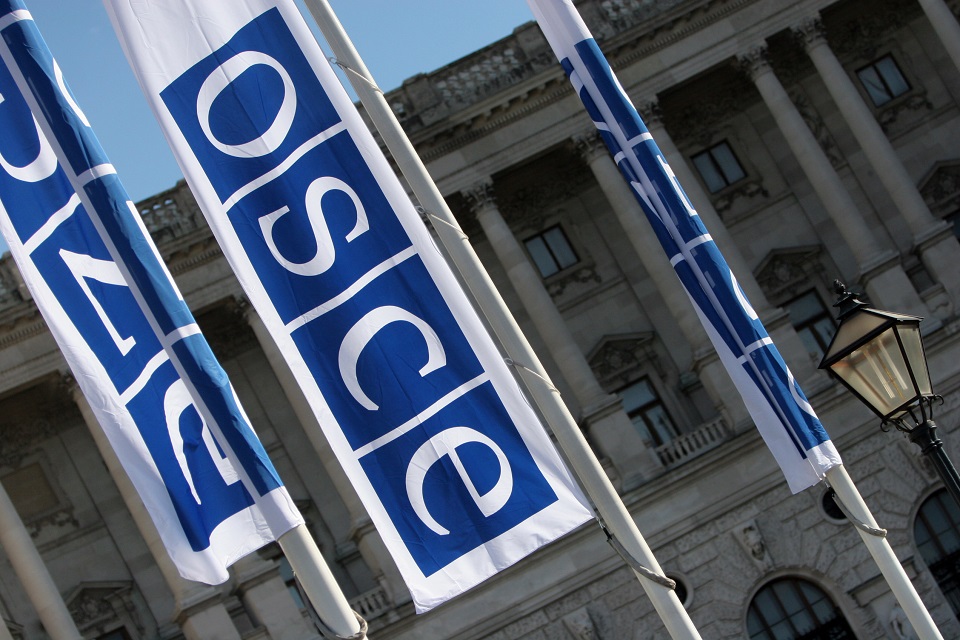Co-Chairs of the Geneva International Discussions: UK response on conflict in Georgia
UK Ambassador Bush welcomes the work of the Co-Chairs of the Geneva International Discussions and calls on all parties to work towards peacefully resolving the conflict in Georgia.

The UK warmly welcomes the co-chairs of the Geneva International Discussions (GID) to the Permanent Council. Thank you for all your valuable work.
The UK unwaveringly supports the work of the Co-Chairs and supports the GID. Conflict resolution remains our priority - and the GID, as the only international forum that brings together all sides from the conflict, plays a vital role in achieving this. We therefore welcome the resumption of regular meetings although we regret that, after 13 years and 54 rounds of discussions, progress has been slow. We call on all parties to engage fully in the GID and to work towards a peaceful resolution.
The UK reaffirms support for an OSCE presence in Georgia to increase the OSCE’s engagement in the GID and the Incident Prevention and Response Mechanism (IPRM) meetings, as well as in the implementation of confidence-building measures. Although we welcome the functioning of the IPRM in Ergneti we highlight the need to restart unconditional regular meetings of the Gali IPRM. These meetings play an important role in preventing the escalation of the conflict and in helping protect the safety and security of people on the ground.
Whilst we welcome the removal of restrictions at the Enguri and Saberio-Pakhulano crossing points, we are concerned that continued restrictions on freedom of movement remain in place and exacerbate the humanitarian crisis in the Georgian breakaway regions. We regret that the Georgian Authorities were unable to facilitate recent local elections in the entirety of their territory, including Abkhazia and South Ossetia. The UK is disappointed that Georgian citizens were denied their constitutional right to vote when prevented from crossing the Administrative Boundary Line. These restrictions also significantly contribute to the ongoing issue of Internally Displaced Persons (IDPs) who are still unable to return to their homes in South Ossetia and Abkhazia. We would urge GID members to return to constructive discussion on IDPs and refugees during the next round.
Madam Chair, we welcome increased discussion in the GID framework of the Women, Peace and Security agenda as important progress. But more needs to be done. The UK is supporting UN Women to help facilitate the meaningful participation of grass-roots women peacebuilders in the formal dialogues and would therefore welcome further discussion by GID participants on the role of women in peacebuilding and security.
The UK remains a steadfast supporter of Georgia’s sovereignty and territorial integrity within its internationally recognised borders. Like the majority of the international community, the UK continues to follow a policy of non-recognition of the self-declared independence of the Georgian breakaway regions of South Ossetia and Abkhazia. Russia’s support for this so-called independence demonstrates a clear lack of respect for the sovereignty and territorial integrity of its neighbour, and for the international commitments that Russia is a party to.
We urge the Russian Federation to fulfil immediately its clear obligation under the EU-mediated 12 August 2008 ceasefire agreement to withdraw its forces to pre-conflict positions, as well as its other commitments under that ceasefire agreement.
Thank you Madam Chair.